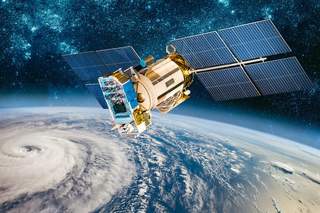
© AdobeStock
Time to wake up for Europe in space
At the end of February 2022, Russia largely terminated its space cooperation with Europe and the European Space Agency (ESA). Among other things, cooperation in the area of Soyuz launch vehicles and the use of the European spaceport in Kourou were cancelled. This is significant because more Soyuz rockets (7) than originally European rockets (3 Ariane, 3 Vega) were launched under the European flag last year.
European and U.S. rockets also still use components (especially engines) from Ukrainian and Russian production, respectively. This applies to the Vega rocket in Europe and the Antares rocket from Northrop Grumman in the USA, among others. Whether the launchers can still operate now is questionable.
In addition, the launch of the new Ariane 6 will be delayed. At the same time, there is also less U.S. transportation capacity available as an alternative. Whether and when the new Ariane rocket can compensate for this remains an open question.
More resilience is needed for European launchers
Should Russia hack, jam or shoot down European satellites as part of its war of aggression against Ukraine that is contrary to international law, Europe will not be able to respond. It is not possible to launch replacement systems into space in the short and medium term. Europe's critical satellite infrastructure is thus under immediate threat. This has far-reaching macroeconomic implications because satellites are elementary to the functioning of our modern society. Whether navigation, communication, data transfer, autonomous driving, climate monitoring or strategic reconnaissance – satellites are key.
Europe and the German government must now urgently draw the necessary conclusions and take action. Germany, in particular, has a responsibility to act because, on the one hand, it has Europe's leading new space ecosystem with three commercial rocket start-ups planning their first launches for the end of 2022. Secondly, it has the largest economy with the corresponding resources and would also be the country most affected by a failure of the infrastructure in space.
What is urgently needed now is significant and sustained support for commercial microlaunchers in Europe through anchor contracts according to the US model and provision of launch sites for small launchers in the EU territory of continental Europe to increase European resilience.



